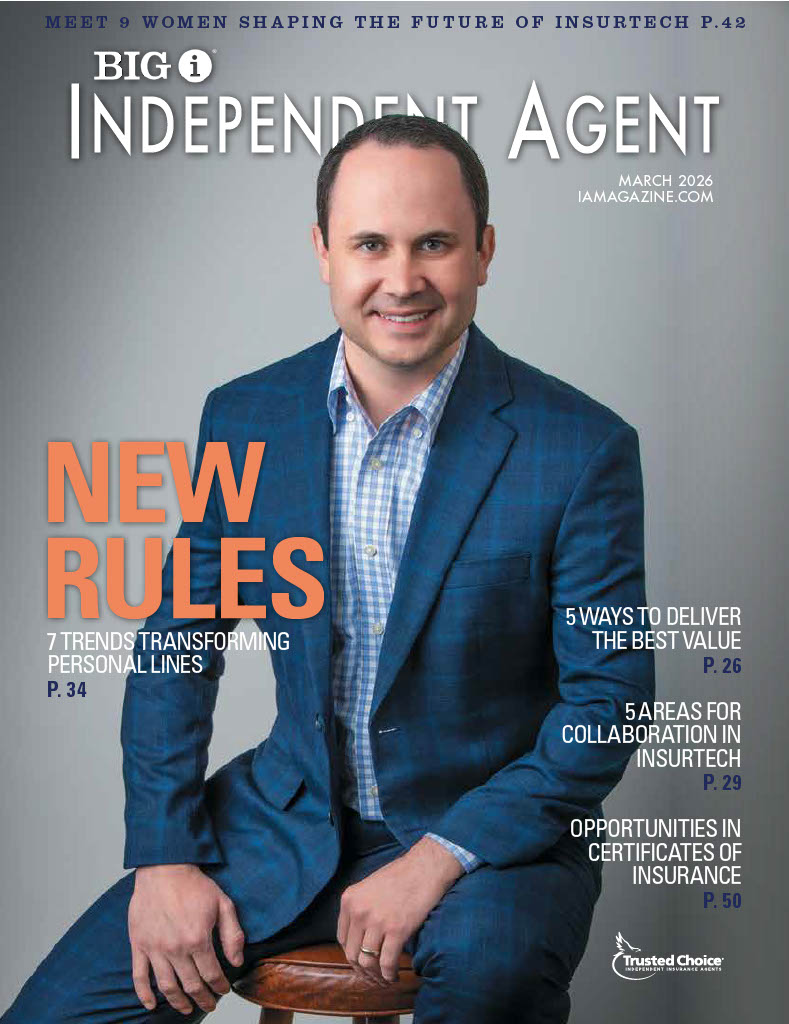3 Important Tips Agents Can Provide Special Events Clients

By: Olivia Overman
As special events return to the way things used to be before COVID-19—for the most part—the net can be cast far and wide when prospecting for special events business, from weddings to fun fairs, farmers markets to larger concert events. A customizable insurance product gives independent agents the ability to craft a special events package that will meet their clients’ needs, whether it is for a large complex event or a smaller, less expensive event.
Today, many venues are unwilling to take on the sole responsibility for damage to their property or for injuries to attendees, with many requiring a certain level of liability coverage from the event host. Agents are in a strong position to work with carriers to provide coverage and can be most effective when they specialize and comprehend all aspects of the special event their client is seeking coverage for.
“Coverage for special events can be placed with many companies, but the coverage offered can be vastly different,” says Spencer Batt, executive vice president & chief marketing officer, American Specialty Insurance & Risk Services Inc. “As an agent, there is real value you can provide to clients by combing through proposals to make sure you are aware of any exclusions or limitations, as well as checking to see if a policy can be secured by other companies without those limitations or exclusions.”
In providing coverage, there are several important aspects that agents should make their clients aware of when it comes to special events insurance. These include:
1) Cancellation coverage. Special event insurance does not always include cancellation coverage. While special event insurance will protect a client against property damage or injury to an attendee, event cancellation insurance will provide coverage for loss of revenue and additional expenses if an event has to be canceled.
It is important to note, however, that certain carriers write both the liability coverage as well as cancellation coverage, and an agent can certainly achieve both if a client requires both coverages.
“By combining a cancellation policy with your special event liability policy, what you’ve done is you’ve really covered yourself from the planning stages of your event because that’s where that cancellation policy can kick in,” says Gregory Esterhai, CEO & co-founder, Eventsured. “And you’ve covered yourself all the way through to the actual event day.”
However, “the pandemic really ravaged the event cancellation space—there were a number of carriers that did not have communicable diseases exclusions on their policies, and it cost billions of dollars,” says Marcus Paxton, entertainment underwriter/broker, Take1 Insurance. “We probably have half as many event cancellation markets as we did pre-pandemic and the ones that remain have dramatically increased their rates or are now applying deductibles.”
2) Common exclusions. While all event circumstances are different, agents should be cognizant of any exclusions or limitations that are being applied. Particularly for sporting events, such as fun runs, après ski, airshows and triathlons, it is common for event participants to be excluded from coverage.
Triathlon races have become very popular, with over six million athletes estimated to be participating in these events worldwide. Yet, they hold many risks. In unfortunate circumstances in August 2023, two people died in the swimming portion of the Ironman Cork triathlon in Ireland.
“Events that include an athletic activity need to pay special attention to the general liability policy to make sure there are no exclusions for athletic participants,” Batt says. “These exclusions are on the rise again as companies try to pull back on terms, but the coverage is a critical one that the event needs to secure.”
3) Common coverage gaps. Agents can review contracts from numerous carriers and make sure the required client coverage is included. The challenge today is that “carriers are looking to provide less, and the venues and markets require more,” Paxton says. “And the policies are different from every carrier.”
In addition, “some special events operate at multiple locations, and agents should check to see if carriers offer a General Aggregate per Location endorsement,” says Stephanie Waldron, chief underwriting officer, K&K. “Another common exposure for special events is liquor liability, either primary or contingent over the serving company’s policy. Agents should check to see if your policy excludes or includes this coverage.”
While special events coverage is intended to provide protection against certain risks that may be unavoidable, “agents should have conversations with the markets that regularly insure events to see if these can be underwritten and removed,” Batt says.
Olivia Overman is IA content editor.










